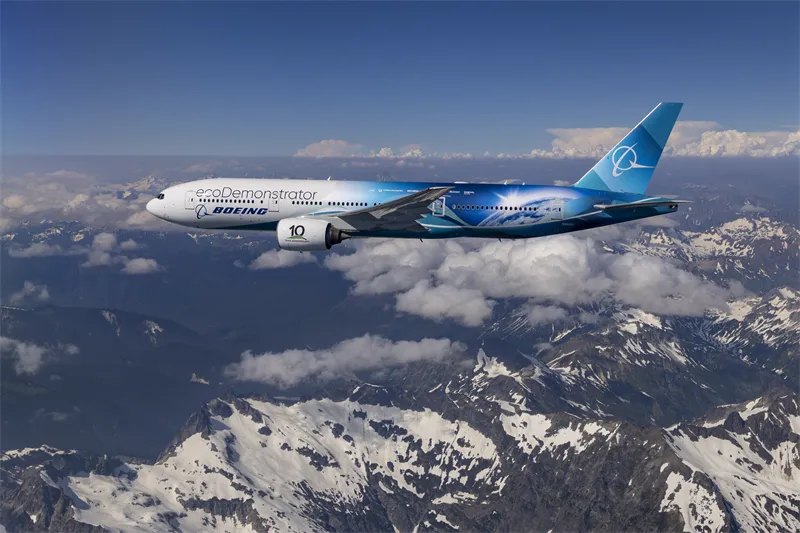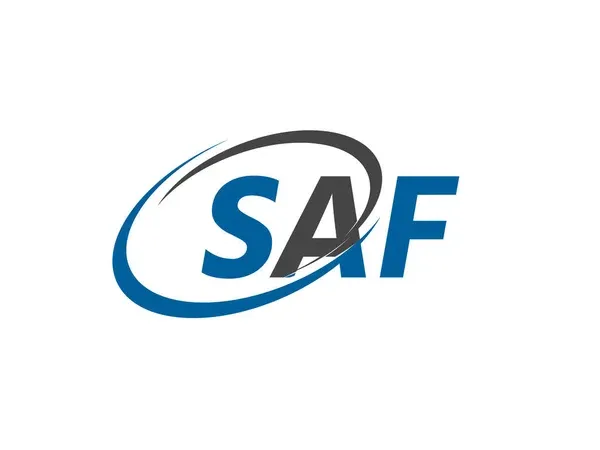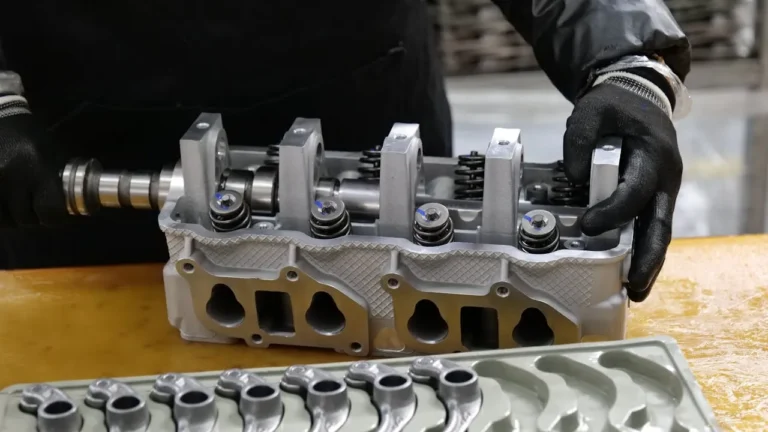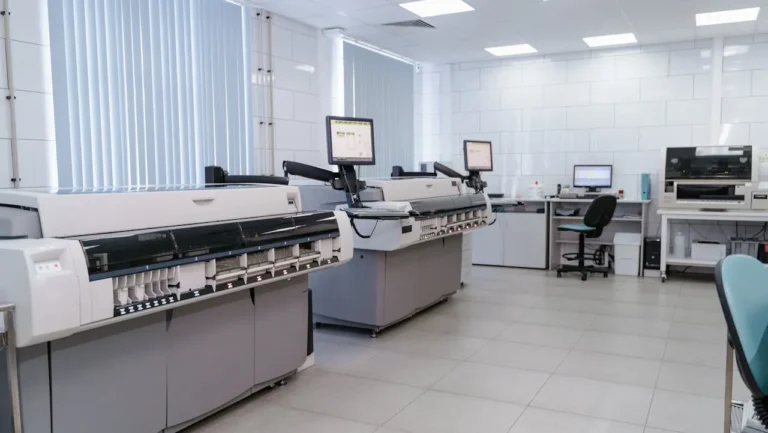
Boeing Teams Up with Norsk e-Fuel to Boost SAF Production and Cut Aviation Emissions
Boeing has officially partnered with Norsk e-Fuel, becoming a key project development partner in one of Europe’s pioneering industrial-scale Power-to-Liquids (PtL) facilities. This strategic collaboration marks a significant step forward in accelerating the production of sustainable aviation fuel (SAF) both in the Nordics and globally. The alliance aligns with the shared vision of the aviation industry and the International Civil Aviation Organization (ICAO) member states to achieve net-zero carbon emissions by 2050. Through this partnership, Boeing aims to drive the global transition to cleaner fuels, making a crucial contribution to the ongoing battle against climate change.
Norsk e-Fuel is set to produce a revolutionary type of jet fuel known as electro-SAF or e-SAF, using an innovative PtL process. This process harnesses fossil-free electricity to generate green hydrogen, which is then combined with recycled CO₂ sourced from biogenic materials. The result is a sustainable fuel that offers substantial environmental benefits. Compared to conventional jet fuel, e-SAF has the potential to reduce lifecycle greenhouse gas emissions by over 90%. This breakthrough technology could play a key role in transforming the aviation sector, making it possible to significantly cut emissions from air travel.
Steve Gillard, Boeing’s regional sustainability director for Europe, the Middle East, Türkiye, Africa, and Central Asia, highlighted the importance of supporting projects like Norsk e-Fuel to accelerate SAF production. “Our collaboration with Norsk e-Fuel underscores the critical need to use fossil-free energy to fast-track the production of SAF,” Gillard said. “This is essential to reducing aviation’s carbon emissions and ensuring we meet the targets set for 2050. Our partnership aims to increase the accessibility and availability of SAF, not just in the Nordics, but across the globe, as we work together to build a robust SAF ecosystem.”
Despite the promising potential of SAF, the fuel currently makes up only a small fraction of the global aviation fuel market. It is estimated that SAF accounted for just 0.53% of global commercial fuel use in 2024. However, regulatory frameworks such as the European Union’s RefuelEU SAF initiative aim to address this gap. Under the proposed mandate, SAF usage in Europe is expected to increase progressively, with the target set at 6% by 2030, rising to 70% by 2050. Additionally, the initiative includes sub-mandates for e-SAF, such as the one being developed by Norsk e-Fuel. These mandates propose a target of 1.2% for e-SAF by 2030, expanding to 35% by 2050.

Boeing’s investment in Norsk e-Fuel will play a crucial role in helping the aviation industry meet these ambitious SAF production targets. The collaboration will also contribute to improving energy security in the Nordic region, offering a sustainable and locally-produced alternative to traditional fossil fuels. Moreover, the partnership is set to inform and shape policies that will enable the economic viability of the global SAF industry, ensuring the long-term competitiveness of the aviation sector in the region.
Lars Bjørn Larsen, Chief Commercial Officer (CCO) of Norsk e-Fuel, explained the broader vision behind this collaboration: “Our goal is to make e-fuels competitive with, and eventually replace, fossil fuels in critical infrastructures. SAF must become both readily accessible and affordable to advance the decarbonization of aviation. Boeing’s investment will help fast-track our project pipeline, enabling the broader aviation industry to transition to net-zero emissions and play its part in addressing the climate crisis.”
The partnership combines Boeing’s longstanding leadership in the aviation fuel industry with Norsk e-Fuel’s cutting-edge technology and deep expertise. Norsk e-Fuel has developed a strong network of industry partners, including Norwegian, the country’s largest airline, which will play an integral role in scaling up the production and use of SAF. This collaboration represents a powerful alignment between two industry leaders, each bringing valuable resources to the table to accelerate the transition to sustainable aviation.
Geir Karlsen, CEO of Norwegian, expressed his enthusiasm for the partnership: “We are delighted to welcome Boeing as a partner in Norsk e-Fuel. This investment is a key milestone for our company and reinforces the positive developments we have achieved in the sustainable fuel sector. Boeing’s extensive experience and expertise will be invaluable as we continue to develop and scale this pioneering industry. Additionally, this investment highlights the need for a supportive policy environment to unlock the full potential of e-fuel production in Norway, in line with the goals set forth by the Norwegian parliament.”
The collaboration between Boeing and Norsk e-Fuel comes at a crucial moment in the aviation industry’s efforts to reduce its carbon footprint. The sector is one of the most challenging to decarbonize, given its reliance on jet fuel for long-haul travel and the difficulty of finding viable alternatives. However, SAF has emerged as a promising solution, capable of reducing emissions from existing aircraft without requiring significant changes to current infrastructure.
SAF is produced through a variety of feedstocks and processes, including the PtL method used by Norsk e-Fuel. As the global demand for SAF grows, it is expected that the production of e-fuels will become a key component in the industry’s efforts to reduce emissions. The joint effort between Boeing and Norsk e-Fuel is an important step toward realizing this future, ensuring that SAF becomes widely available and accessible to airlines around the world.
The partnership also highlights the importance of collaboration between public and private sectors, as well as industry stakeholders, in driving the transition to sustainable aviation. Boeing’s involvement brings not only financial support but also expertise in fuel systems and a deep understanding of the aviation market. Norsk e-Fuel, for its part, brings cutting-edge technology and a strong commitment to creating a sustainable fuel solution for the aviation industry.
As the aviation industry looks ahead to the decarbonization targets set for 2050, partnerships like the one between Boeing and Norsk e-Fuel will be critical in ensuring the sector can meet its goals. The collaboration is a testament to the power of innovation, investment, and teamwork in tackling the global challenge of climate change.
In the coming years, it is expected that more partnerships will emerge between aviation companies, fuel producers, and governments to further accelerate the development and commercialization of SAF. As these efforts gain momentum, the goal of achieving net-zero emissions in aviation by 2050 will become increasingly attainable. Boeing’s partnership with Norsk e-Fuel represents a significant step in this direction, demonstrating the commitment of industry leaders to sustainability and the urgent need for action on climate change.
In conclusion, Boeing’s investment in Norsk e-Fuel is a landmark development in the push for sustainable aviation. The partnership will help drive the production of e-SAF, support the achievement of global decarbonization goals, and contribute to the long-term sustainability of the aviation industry. Through their combined efforts, Boeing and Norsk e-Fuel are laying the foundation for a greener, more sustainable future for air travel, one that minimizes the environmental impact of flying while ensuring the continued growth and success of the global aviation sector.




